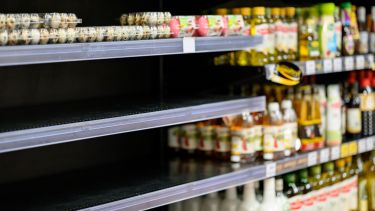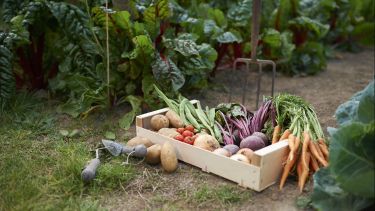- University of ∫˘¬´”∞“µ academics to investigate the impact of the coronavirus pandemic on local food suppliers
- Team of experts will make recommendations to government on how more local production could improve long-term UK food security
- Initial findings expected in September 2020
Local producers have become a crucial source of supplies for the UK’s food system during the pandemic and could improve its resilience for the long-term, according to researchers.
A team led by Dr Anna Krzywoszynska from the University of ∫˘¬´”∞“µ‚Äôs Institute for Sustainable Food is launching a major study into the impact of the coronavirus pandemic on local food producers. They will investigate how local supply chains have contributed to food security during the crisis, and how they can prevent shortages over the long term.
The project will deliver real-time analysis to build an understanding of the current and future resilience of the local food system in light of the pandemic. It will track emergency responses in the immediate crisis period, and develop strategies to inform longer-term plans to build further resilience, providing essential data to support a much-needed diversification of the UK’s food system during and after the crisis.
Physical distancing measures have caused major disruption for the UK’s food sector - from shortages of fruit pickers, to restaurant closures and spikes in demand for certain products - and these impacts are likely to be compounded by Brexit. Direct sales of vegetable boxes from local growers or community supported agriculture schemes have during the pandemic, and local food producers or high-quality goods such as speciality cheeses and meats have pivoted from supplying restaurants to online sales.
With just 16 per cent of fruit and 53 per cent of vegetables sold , the UK is particularly vulnerable to disruptions to international supply chains.
Working with partners such as the Soil Association and the Farm Retail Association, the University of ∫˘¬´”∞“µ academics will gather data about how local food systems are responding, and produce recommendations for the industry and the Department for Environment, Food and Rural Affairs.
The team expects to publish initial findings on the impact of the pandemic on the local food sector in September 2020, with final policy recommendations released by August 2021.
The study is the only wide-ranging, in-depth and systematic research project into the contribution and resilience of the local food system in ensuring the UK’s food security during and after the pandemic. It is being funded by UK Research and Innovation’s Economic and Social Research Council.
We know that our food systems are not sustainable, and the Covid-19 pandemic is a direct result of this unsustainability.
We have a chance to use this moment to change food systems for the better. We know that re-localising food is key for food security and for human and environmental health. This project will allow us to better understand how we can strengthen the local food sector in the UK to ensure a better food future. I am thrilled that we can contribute to this important and timely work through our research.
Dr Anna Krzywoszynska
Associate Director of the Institute for Sustainable Food at the University of ∫˘¬´”∞“µ and Principal Investigator on the project.
Contact
Sophie Armour, Media & PR Officer at the University of ∫˘¬´”∞“µ: 07751 400 287 / 0114 222 3687 / sophie.armour@sheffield.ac.uk


